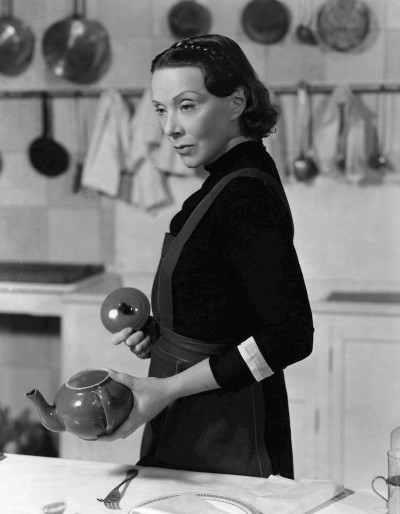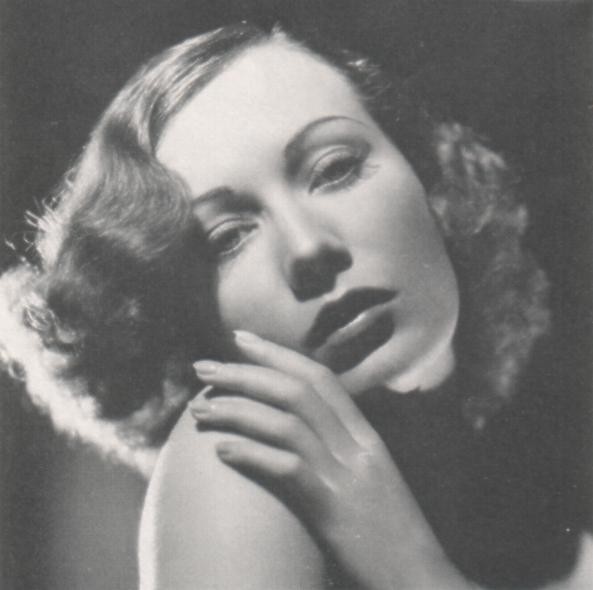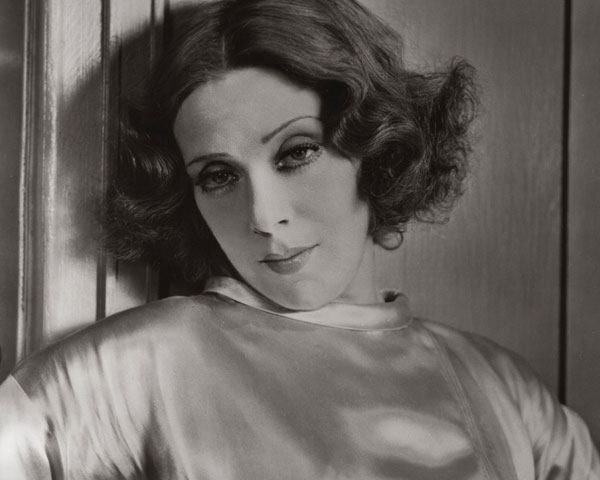Eugenie Leontovich (Eugenie Leontovich)

Born in Podolsk, she studied at Moscow’s Imperial School of Dramatic Art, and then under Meyerhold at the Moscow Art Theatre, which she subsequently joined. As the daughter of an officer in the Russian Imperial Army, Eugenie Leontovich suffered greatly during the Revolution. Her three brothers (who were Army officers like their father) were murdered by the Bolsheviks. In 1922, she “found her way to New York and set about mastering the English language”. Her success led to Broadway stardom. After touring the country in Blossom Time, she was cast as Grusinskaya in an adaptation of Vicki Baum’s novel Grand Hotel. An enormous success, the play, which opened in 1930, was later filmed with Garbo in the part created by Leontovich. After Grand Hotel Leontovich was given the role of Lily Garland (aka Mildred Plotka) in Twentieth Century, a comedy by Ben Hecht and Charles MacArthur that was later made into a musical, a decided change of pace. She played the role from December 29, 1932 until May 20, 1933. In 1954, she created the role of the Dowager Empress in the play Anastasia on Broadway. (The role was played by Helen Hayes in the film version.) She also played the Archduchess Tatiana in Tovarich, a comedy about a pair of Russian aristocrats who survive in Paris by going into domestic service. It was in this play that she made a highly successful London debut at the Lyric Theatre in 1935, with Cedric Hardwicke as her co-star. During World War II she appeared on Broadway in Dark Eyes, a comedy she wrote with Elena Miramova about three Russian exiles in New York. The play was produced in London after the war with Eugenia Delarova and Irina Baronova. In 1936, she had played Shakespeare’s Cleopatra at the New Theatre, returning to London in 1947 as a female Russian general in a farce which she co-authored, Caviar To The General, which temporarily displaced Phyllis Dixey at the Whitehall. A year later, she moved to Los Angeles, where for the next five years she had her own theatre, The Stage, where she both produced and performed.
In 1972, she adapted Anna Karenina for off-Broadway, calling it Anna K. and appearing in it with success. Leontovich made a handful of films. For most of her long professional life she was identified with the stage. For seven years in the 1960s she was artist in residence at the Goodman Theater in Chicago. She taught acting in California and New York. Leontovich, whose students addressed her and referred to her as “Madame”, lived in a Manhattan apartment surrounded by family pictures and icons. Both of her marriages ended in divorce and she had no children. She had been a naturalized United States citizen since 1929. According to her official biography, her first husband, Paul Sokolov, was purportedly a Russian noble. Her second husband was actor, producer, and director Gregory Ratoff, whom she married on January 19, 1923; they lived in California until their divorce,[when?] and she moved to New York.
Born
- March, 21, 1900
- Moscow, Russia
Died
- April, 03, 1993
- USA
- New York, New York
Cause of Death
- pneumonia



